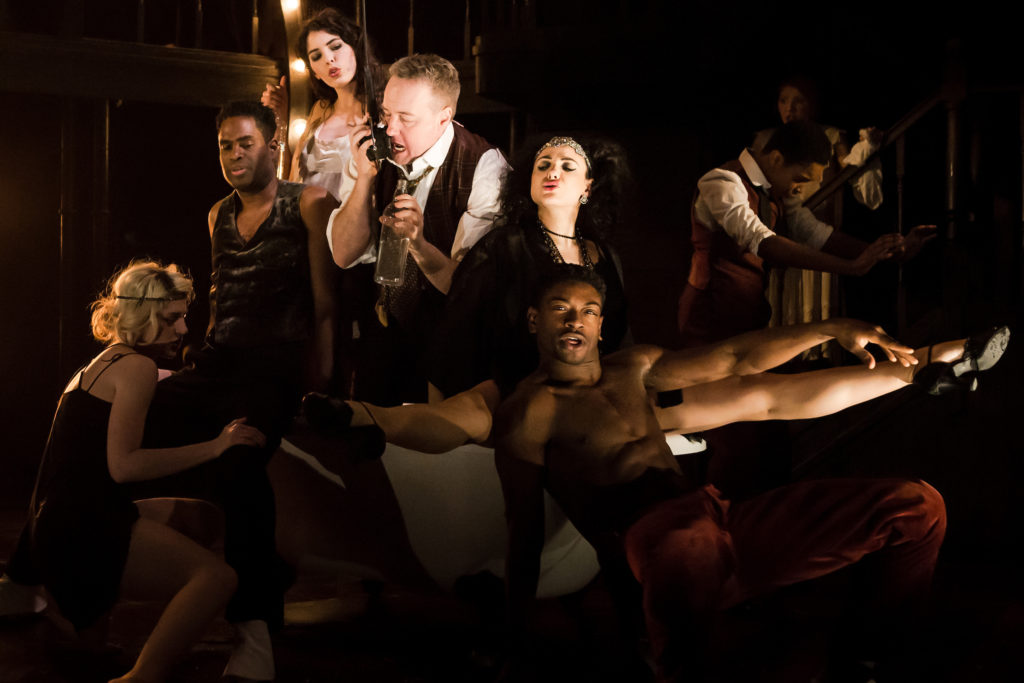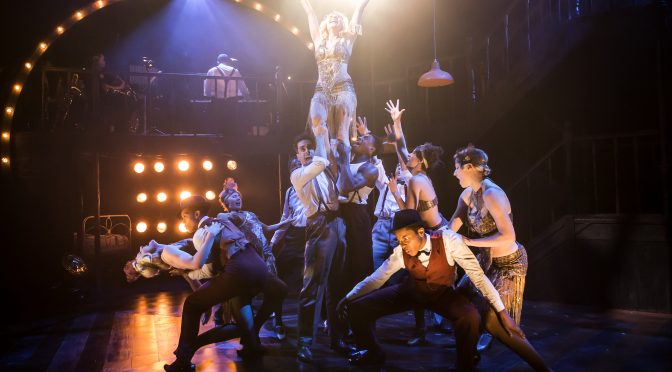The renamed St James Theatre, now in Lord Lloyd Webber’s portfolio, has the new raison d’être of trying out and refining musicals. And there’s the aim of starting conversations from artistic director Paul Taylor-Mills that warms a blogger’s heart. The first show, by Michael John LaChiusa, is a strong start, but a puzzle, too. Seen on Broadway in 2000, it already seems so cogently formed that there is little new to talk about.
The piece is experimental in that it is based on a poem – by Joseph McClure March – can anyone think of another musical apart from Cats with such a source? George C Wolfe’s book is structurally audacious and, while the scenario couldn’t be slimmer – someone holds a party, that’s it – the tension ratchets up and up. Both music and lyrics have little time for novices or a discernable eye on commercial success. The milieu here isn’t that familiar to a British audience (jokes, in particular, are a touch obscure) but LaChiusa’s knowledge of American music is obviously profound.
A good portion of the show is a series of introductions. Taking the lead is Queenie, a dancer in Vaudeville, brilliantly portrayed by the legendary Frances Ruffelle, who gives this tart-with-a-heart appropriate depth. Her common law husband, played by John Owen-Jones – also tremendous – ensures the show is not one for coulrophobics. This complicated relationship is the vehicle for exploring obsession and dependence.

Presenting other partygoers gives the rest of the ensemble a chance to shine. Dex Lee is particularly strong as the arch hedonist Jackie, a sophisticate who turns bestial. And, as Queenie’s best friend Victoria Hamilton-Barritt really gets her teeth into a juicy role. It would be hard to sacrifice any of these characters… but maybe more focus might have made the show more enjoyable? Combining high and low life and a mix of ages, races and sexualities has a point but means there’s a lot to handle here. And don’t forget a moral. Like many works of art about libertines, The Wild Party is a warning. When the bootleg gin arrives, complete with bathtub on stage, it would make Hogarth proud.
The venue’s aim as an experimental home is fulfilled for Drew McOnie. While his acclaimed choreography adds enormously to what could be a static affair, his remarkably assured debut as a director is the real story. The piece calls for strong acting and McOnie secures it. There’s a cutting pathos to many of the affairs. And a crazed wish for love, sex, drugs and ambition, with a scary intensity that McOnie doesn’t spare us from.
Until 1 April 2017
Photos by Scott Rylander

